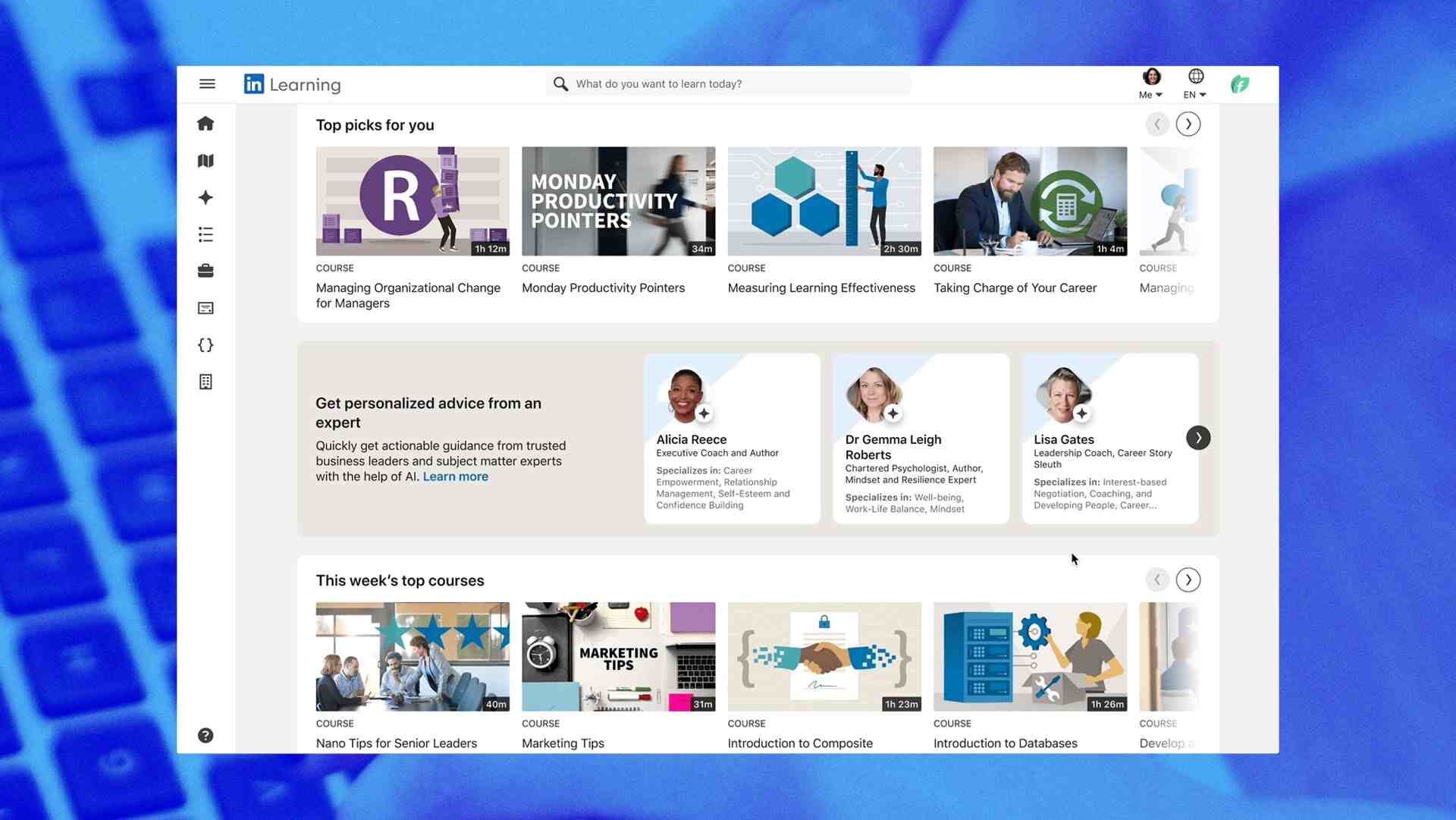- | 8:00 am
LinkedIn Learning adds more AI-powered coaching features
Users will have new ways to seek answers from the platform’s library of instructional videos.

A new pilot program from LinkedIn will offer users AI-delivered advice, crafted based on wisdom from particular LinkedIn Learning instructors.
LinkedIn worked closely with instructors including chartered psychologist Gemma Leigh Roberts and business professor and strategy expert Anil K. Gupta to train AI based on their LinkedIn Learning courses, LInkedIn posts, and some of their other published work, enabling the bots to offer instantaneous tips of the kind those instructors would offer in a coaching session.
“Once we had that, we worked with them pretty closely with them to make sure that they were happy with the responses,” says Hari Srinivasan, VP of product at LinkedIn Talent Solutions.
The AI is calibrated to avoid answering a question from a particular instructor’s point of view if it’s outside their area of expertise, and Srinivasan says it can be updated over time to cover more topics that frequently come up in user questions. And users can consult the AI versions of multiple instructors to answers that are useful to them and, perhaps, keep coming back to those whose answers best align with their needs, just as they would with a human coach or instructor.
It’s part of an overall push by LinkedIn to make knowledge from its library of LinkedIn Learning courses quickly accessible through artificial intelligence. A previously announced virtual coach, which can offer on-demand answers to career and management questions, is now being rolled out to all users with Premium or Enterprise level subscriptions.
That tool includes links to LinkedIn Learning videos that support its answers, though Srinivasan says one advantage is that users can query it in situations where they don’t have time to consult a video, like when looking for a quick answer during a meeting. Answers are generally tailored to the user asking the questions, based on factors like their job titles and career goals they can specify in configuring the AI.

The platform is also adding an AI feature to answer questions about specific LinkedIn Learning course videos. Instructors, who already receive royalties based on video views, will also be compensated based on questions asked and answered, though LinkedIn declined to provide details of the royalty rates.
“It was a principle for us, that we wanted to make sure they were compensated for this,” says Srinivasan. “So we’re very excited to be able to do that for them, and we think we’ll continue to get the best experts because of that.”
Users were already able to ask questions of instructors through a Q&A feature attached to LinkedIn Learning videos, but they had to wait for the lecturers to review their questions and respond. The AI feature will enable them to get instantaneous responses—and may save instructors from repeatedly fielding common questions that many users have. It’s currently being rolled out to LinkedIn Premium and Enterprise customers across a library of more than 10,000 English-language videos.
It’s unlikely the text-based responses will ever fully replace course videos, since even aside from people who generally prefer to learn from audio and video, Srinivasan points out that some courses have a strong visual component, like videos teaching how to use particular software tools. But it’s possible that some instructors may change how they design their LinkedIn Learning courses, knowing that users are able to interact with the AI.
“That’ll be a new form [of] instructional design that we’re excited about seeing how we perfect as well,” Srinivasan says.







































